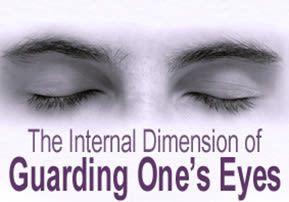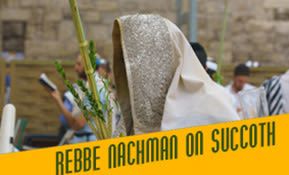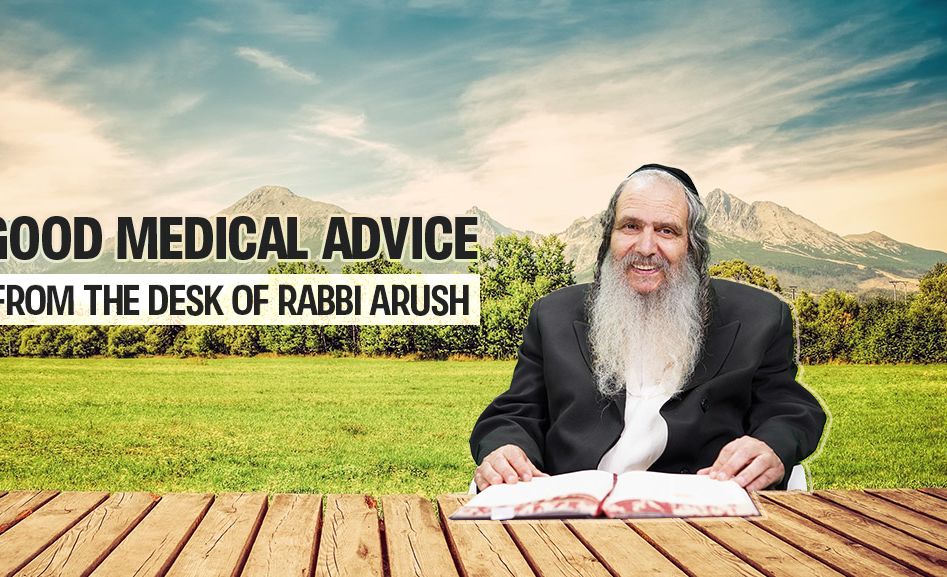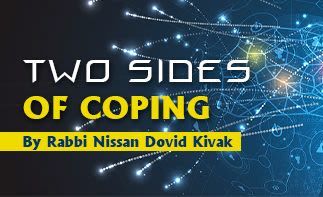
Guarding One’s Eyes
Ask yourself: what are you looking for in life? Do you want emuna? Do you want to know that there is nothing other than Hashem?

The internal dimension of guarding one’s eyes is emuna, when one says to himself, “I live my life with Hashem, there is no one other than Him, what else is there to see?” Such an individual realizes that every thought, utterance, and deed in life should be according to Hashem’s will. Since Hashem commanded us to close our eyes, then that’s exactly what we should do! Rabbi Eliahu Lapian of blessed memory said that our forefather Abraham didn’t lift his eyes from his immediate two square meters all the days of his life. When describing the Akeida, the sacrifice of Isaac (see Bereishit 22:4), the Torah says, “And Abraham lifted his eyes on the third day, and saw the place from afar,” in other words, Abraham lifted his eyes to see the cloud of the Shechinah, the Divine Presence, atop of Mount Moriah.
The next time Abraham lifted his eyes was to take the sacrificial ram that was sent to him in place of Isaac (ibid, verse 13): “And Abraham lifted his eyes and saw, and behold a different ram was entangled by the horns in the brambles, and Abraham went and took the ram, and raised it on the altar as a sacrifice in lieu of his son.”
“And Abraham lifted his eyes on the third day, and saw the place…” Our sages teach that the place, in Hebrew hamakom, alludes to the Divine Presence. Abraham’s heart was unified; there was no difference between his thoughts and his external actions. On an internal dimension, he only wanted to see Hashem. Therefore, when he lifted his eyes, that’s exactly what he saw – Hashem!
In contrast, let’s look at Esau. The Torah also says (ibid, chapter 33) that Esau “lifted his eyes.” But what did he see? “…and he saw the women.” Esau guarded his eyes, for he grew up in the home of a great tzaddik, his father Isaac. But, his heart harbored nothing but lewd thoughts. So, as soon as he lifted his eyes, he saw women. Hashem takes us on the road that we choose for ourselves.
Rabbi Yaakov Abu Chatzeira of blessed memory asks: If everything begins with the eyes, the why did the Torah mention the heart before it mentioned the eyes, for it is written, “You shall not stray after the heart and the eyes that you are pandering after them” (Bamidbar, ch. 15).
The answer is simple and quite self-apparent: When a person lives with emuna, he surely closes his eyes, so there’s no need to command him to close his eyes. But, the heart incites a person to open his eyes, therefore the heart must be commanded first, as it is written, “You shall not stray after the heart and the eyes.”
Because of the heart’s role in tempting a person, the Torah also commands (Devarim, ch. 11), “Beware lest your heart tempt you to stray and serve false gods and bow down to them.” The Baal Shem Tov of blessed memory explains that as soon as the heart tempts – in other words, a person allows himself to be tempted by the heart – immediately one strays and serves false gods, for he loses his connection with emuna. Losing one’s emuna is tantamount to idol worship, for in spirituality, there’s no middle ground.
What are You Looking For?
The viceroy made a valiant effort to rescue the princess – he traversed the desert and outback for years until he finally found her in the castle. Even then, his job wasn’t over, for he still had an entire year of yearning, praying, and spiritual strengthening ahead of him. He did everything he was supposed to do until the climactic final day when he didn’t sleep and didn’t eat. He invested tremendous effort. Now, just as it comes time to rescue the princess – boom! He fell on his face in utter failure! He opened his eyes!
Can you imagine if this were a football game? People would be yelling from the grandstands, “Hey, Mr. Viceroy! You’re going to rescue the princess! She’s emuna! Close your eyes! Concentrate on your goal! What are you looking for, other than emuna?!”
A person looks around like his neck is a tank turret when he thinks there’s anything in the world other than Hashem. If that’s the case, then he’s not yet ready to redeem the princess, for if he had emuna, he wouldn’t look at anything.
Ask yourself: what are you looking for in life? Do you want emuna? Do you want to know that there is nothing other than Hashem? Then why do you walk around with your eyes wide open? What’s there to see? Are you going somewhere? Try to get there without forgetting Hashem on the way…
To be continued.









Tell us what you think!
Thank you for your comment!
It will be published after approval by the Editor.